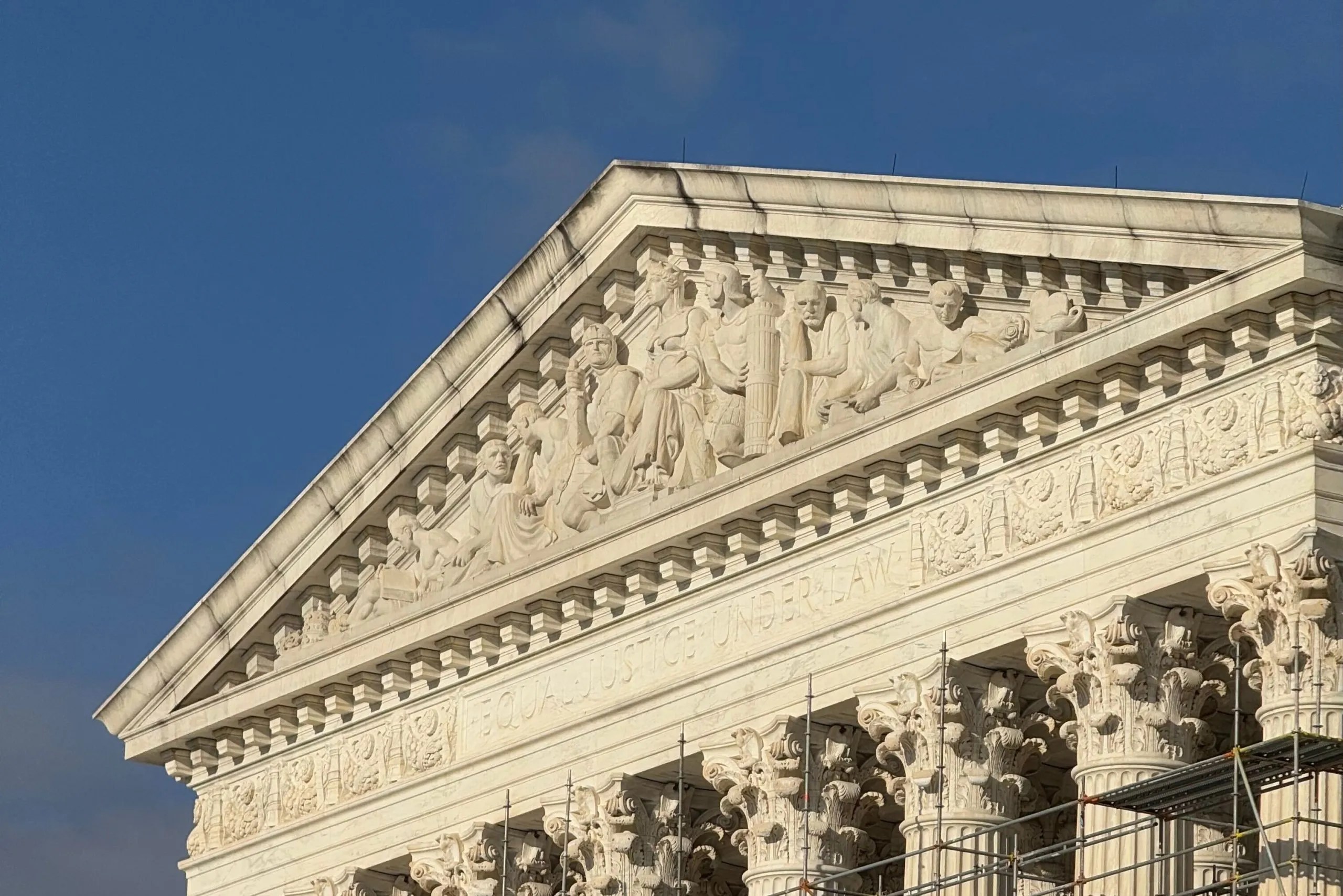SCOTUStoday for Monday, October 20


The court did not announce any new grants of cases on Friday, but that doesn’t mean SCOTUSblog had a quiet afternoon. Read on to learn about three major pieces of news that hit our inbox as the weekend approached.
Morning Reads
- US courts set to run out of money, begin furloughs as shutdown lingers (Nate Raymond, Reuters) — As the government shutdown stretches on, the U.S. federal court system today “will begin curtailing non-essential functions and furloughing some employees after exhausting what funds the judiciary had left to sustain paid operations,” according to Reuters. It will be the “first time in nearly three decades” that the federal judiciary has had to “send some of its over 30,000 employees home and require others to work without a paycheck.” However, “[c]ourts will remain open, and judges and Supreme Court justices will still get paid, thanks to a bar in the U.S. Constitution against a diminution in their pay.” For more on how the shutdown is affecting the Supreme Court, read SCOTUSblog’s article, published on Friday.
- Trump says Supreme Court would imperil national security if it rules against tariffs (David Zimmerman, Washington Examiner) — President Donald Trump believes national security will be on the line when the court considers a challenge to his “ambitious tariff agenda” on Nov. 5, according to the Washington Examiner. “This is national security,” he said during a Sunday appearance on Sunday Morning Futures on Fox News. “If they took away tariffs, then they’ve taken away our national security.” Trump shared a similar message last week when speaking with reporters about potentially attending oral arguments in the case. “I think it’s one of the most important cases ever brought because we will be defenseless against the world,” he said.
- Transgender SC student drops appeal in bathroom lawsuit after switching to virtual school (Skylar Laird, South Carolina Daily Gazette) — Nearly six weeks after the Supreme Court left a ruling in place allowing a transgender student to use the boys’ bathroom at school in South Carolina, the teen has switched to “virtual learning,” according to the South Carolina Daily Gazette. The student, referred to in court filings as John Doe, made the change “because of discrimination based on his gender identity, including harassment from school staff and peers,” said Alexandra Brodsky, an attorney for Public Justice, which represents Doe. The student’s lawsuit against a state budget proviso that “puts school districts at risk of losing 25% of their state aid if they let transgender students use multi-occupancy bathrooms and locker rooms that align with their gender identity” will continue, although it’s on hold while the Supreme Court considers two cases on transgender athletes. The student has dropped an appeal of that hold, as well as a request to pause enforcement of the proviso while the litigation proceeds.
- The First Two Weeks: What Supreme Court Oral Arguments Reveal About the Term Ahead (Adam Feldman, Legalytics) — SCOTUSblog contributor Adam Feldman analyzed the first two weeks of the 2025-26 term for his Substack, drawing out which justice spoke the most (Ketanji Brown Jackson), what types of questions dominated oral arguments (ones about standing and potential remedies), and what types of decisions we can expect this term. “These first two weeks suggest the Court is taking its time—narrowing where it can, pressing for workable standards, and showing more interest in how decisions will be applied than in how they will read in a casebook. Whether that caution holds as the term progresses and as more politically charged cases arrive remains to be seen.”
- Import Tariffs and the Supreme Court (Desmond Lachman, AEI) — In a post on the tariffs dispute in front of the court, Desmond Lachman, a senior fellow for AEI, contended that the court should reject “Trump’s use of emergency power to raise import tariffs” because the Trump administration helped create the emergency that it claims to be trying to address. “Not only is the first Trump administration responsible for a large part of today’s trade deficit. The second Trump administration’s reckless budget policy is bound to at least keep the trade deficit high for many years to come notwithstanding, the heights to which import tariffs have been raised.”
SCOTUS Quick Hits
- On Friday, the Supreme Court announced that it expected to run out of funding on Saturday, Oct. 18, and, as a result, would close its building to the public “until further notice.” But for the most part, the work of the 2025-26 term will continue as usual.
- Also on Friday, the Trump administration urged the justices to clear the way for it to federalize and deploy the National Guard in Illinois. The court has asked the challengers in the case – the state of Illinois and the city of Chicago – to file their response by 5 p.m. EDT today.
- The court on Friday also revealed its December argument calendar, which includes several major cases.
- An order list outlining some of what the justices decided during their private conference on Friday is expected today at 9:30 a.m. EDT.
- Briefs from the small businesses challenging Trump’s tariffs are due today.
A Closer Look: The Commercial Litigation Panel at the SCOTUSblog Summit
For those who want to take a break from reading about Trump’s deployment of the National Guard (explained in Amy’s article, below), the video of the discussion between the chief legal officers of Walmart, Citi, and Meta at the SCOTUSblog Summit at Johns Hopkins University Bloomberg Center on Sept. 25 is now available online. Panelists shed light on commercial litigation at the Supreme Court and what issues they’re watching closely.
David Lat of Original Jurisdiction, who moderated the panel, noted that the Roberts court is often described as one of if not the most pro-business courts in the history of the Supreme Court and then asked the panelists if they agree with that assessment. Rachel Brand of Walmart, Brent McIntosh of Citi, and Jennifer Newstead of Meta somewhat pushed back on that claim. According to them, the justices are more focused on applying legal text and precedent than finding the answer that will be most beneficial for businesses; sometimes this benefits businesses, sometimes it does not.
Specifically, Brand said that, for better or worse, the justices generally aren’t thinking about the “practical consequences of their decisions,” which is why “you’re not going to find your salvation in the Supreme Court.” Similarly, McIntosh said that “the court seems to be unconcerned with which side of the ‘v.’ the companies are on.”
However, that doesn’t mean companies hope business litigation will never come before the court. The panelists emphasized that it’s valuable for the justices to weigh in when courts of appeals have issued conflicting rulings on a business-related issue, since circuit splits complicate the work of national brands. Newstead said the court “brings clarity and consistency and predictability” to the law that’s needed for businesses to thrive, adding that she’s hopeful that the justices soon will help the tech sector sort through “questions of real national importance” related to artificial intelligence and the future of technology.
You can find a video of the full panel on YouTube.
SCOTUS Quote
“[F]ollow your star if you want to head north and it’s the North Star. But if you want to head north and it’s Mars, you had better follow somebody else’s star.”
On Site
From Amy Howe
Trump Asks Court to Allow National Guard Deployment in Illinois
The Trump administration has asked the Supreme Court to pause an order by a federal judge in Illinois that bars the federal government from deploying the National Guard to Illinois. U.S. Solicitor General D. John Sauer told the justices that the order “cause[s] irreparable harm to the Executive Branch by countermanding the President’s authority as Commander in Chief, jeopardizing the lives and safety of DHS officers, and preventing the President and the Secretary of War from taking reasonable and lawful measures to protect federal personnel from the violent resistance that has persisted in the Chicago area for several months.” Sauer also asked the court to issue “an immediate administrative stay to prevent ongoing and intolerable risks to the lives and safety of federal personnel while this Court considers this application.” A response from the state of Illinois and city of Chicago is due by 5 p.m. EDT today, and that timeline signals that the justices could act quickly in the case, according to Amy’s analysis.
The court announced on Friday afternoon that it will hear oral arguments on Dec. 8 in the battle over the president’s power to remove the heads of independent federal agencies created by Congress. The case, Trump v. Slaughter, is one of eight cases scheduled for oral argument during the court’s December argument calendar, which runs from Dec. 1-3 and again from Dec. 8-10. Other high-profile cases slated for argument in December include National Republican Senatorial Committee v. Federal Election Commission and First Choice Women’s Resource Centers v. Platkin. For more information on the December sitting, read Amy’s analysis.
As noted above, the fallout from the federal government shutdown has come to the Supreme Court. Patricia McCabe, the head of the court’s Public Information Office, said in a statement released to reporters by email on Friday afternoon that the court “expects to run out of funding on October 18” and “if new appropriated funds do not become available” after that, “the Court will make changes in its operations to comply” with federal law. That court building is now closed to the public until further notice. Read Amy’s analysis to learn more.
Contributor Corner
In his latest Nuts and Bolts column, Stephen Wermiel reflected on recent cases in which the justices have altered the questions posed in a petition or written new ones, including Louisiana v. Callais, a high-profile dispute over the Voting Rights Act. “The practice by the Supreme Court is not without controversy in academic circles,” Wermiel wrote. “A handful of commentators have argued in recent years that an appellate court should be reviewing full cases rather than picking and choosing issues to decide. The criticism suggests that in this process, the justices are acting less like a reviewing court and more like a political body setting an agenda.”
Selective and Vindictive Prosecution
In his latest SCOTUScrim column, Rory Little explored the recent federal indictments of former FBI Director James Comey and New York State Attorney General Letitia James, and outlined the legal doctrines that permit challenging a criminal prosecution as unlawfully selective or vindictive.
Posted in Featured, Newsletters